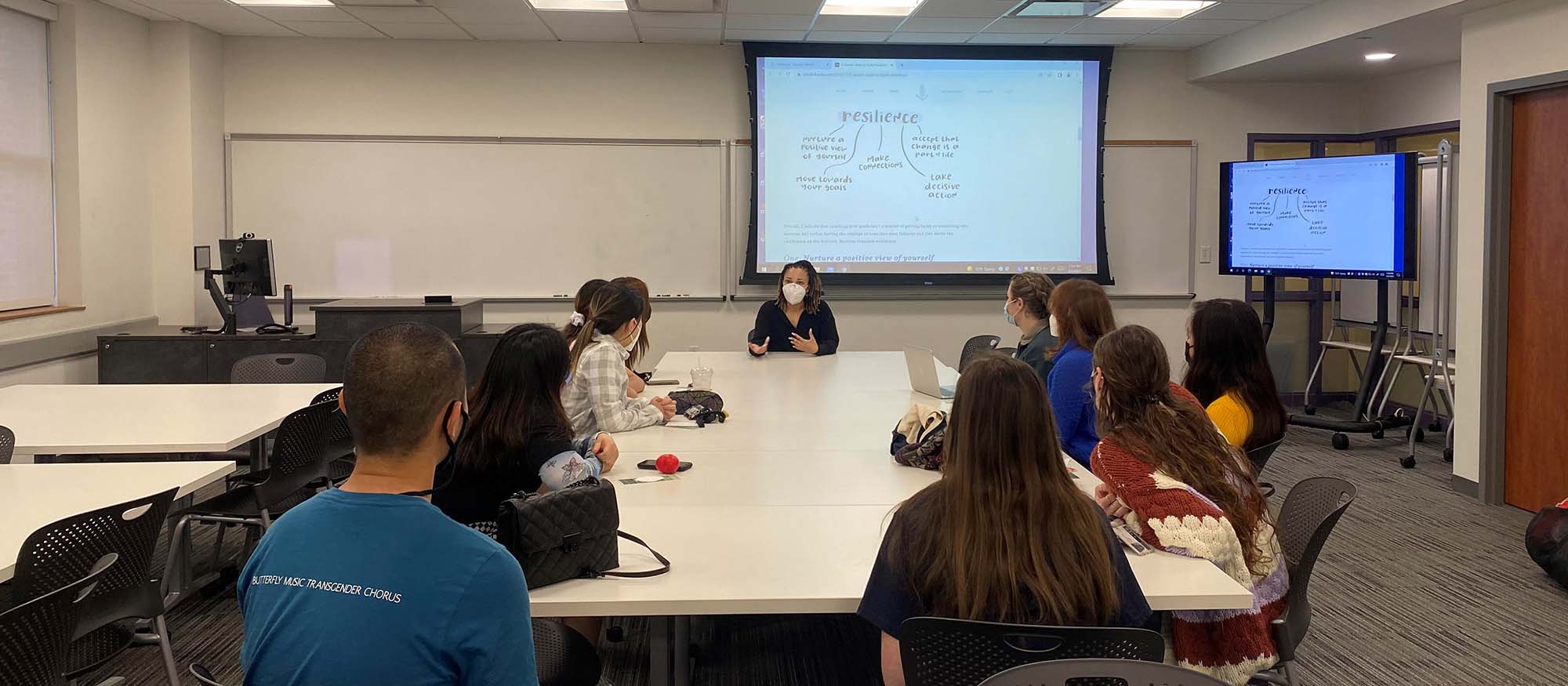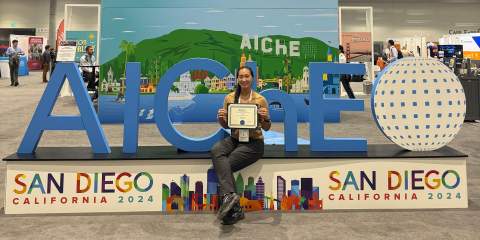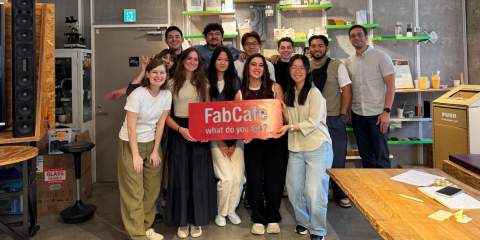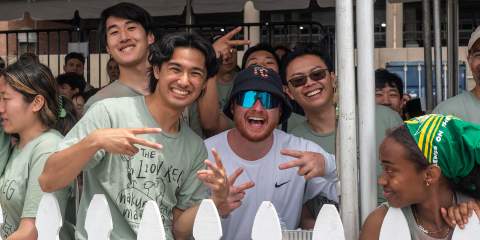We all encounter some form of difficulty in our lives; some survive it, some thrive despite it, and others reach even greater heights because of it. In the face of inevitable challenges, the importance of understanding how resilience can help us best respond cannot be overstated. For this reason, the WorKing Resilience Lab is focused on understanding workplace resilience—the process through which employees continue pursuing work goals and maintain their wellbeing despite adversity.
The WorKing Resilience lab works with educational institutions, business practitioners, policymakers, and interested others to understand and positively influence resilience for employees, teams, organizations, and communities. This employee resilience research focuses on understanding the influence of chronic stressors or isolated adverse events on outcomes such as motivation, performance, burnout, engagement, and turnover. Some of the lab’s projects deal with clarifying concepts and improving measurement of resilience research, understanding perceptions of resilience in interviews, and helping to uncover the means by which sole working mothers, shift workers, and unemployed job seekers can foster resilience on a daily basis. Our research lab offers a unique opportunity to study human cognition, affect, and behavior through both psychological theory and practice.

We asked a few students to share their experiences with the WorKing Resilience Lab and their biggest takeaways from this exciting research opportunity:
I had no research experience when I joined the WorKing Resilience Lab, and I thought that my limited background in the area would prevent me from fully getting involved with on-campus research. Consequently, when I was welcomed into the lab so readily and saw how supportive the lab group was, I was shocked. The WorKing Resilience not only does amazing research that I am very proud of but also creates an environment that taught me how to get involved in research and to explore the questions I was passionate about. From learning the hard way about how difficult recruitment can be to helping one of our graduate students, Cassandra, write a study, I have been presented with fantastic opportunities. From coming in as a new researcher my sophomore year to leaving this semester as a senior and as the lab manager, I can say that the WorKing Resilience Lab has not only seen my growth into the role of a researcher on my way to graduate school but also inspired it.
I also wanted to thank Dr. King for her incredible mentorship. From giving me my first opportunity to research to answering every question that I had, no matter how big or small, she has helped me through every step. I am so grateful for her guidance and appreciate having such an accomplished role model!
Catherine J., Research Assistant and Lab Manager, Jones '22
Being a part of the WorKing Resilience Lab has been a wonderful experience and a huge learning opportunity. Throughout my time in the lab, I have worked with some really incredible people who have a clear passion for research, Dr. King included. Dr. King has been really big on us getting what we want out of our lab experience and us learning what we are interested in learning, and that has been very rewarding. I have learned a lot about working as a team and communicating in this setting. I have gotten to interact with participants and build some really useful research skills like recruitment, coding and survey tool design. It has been such a safe and supportive environment to learn in as a newbie in research and I am very grateful for the entire experience.
Alexandra T., Duncan '23
My membership in the WorKing Resilience Lab has proved to be one of the most gratifying and edifying experiences in my graduate school journey thus far. As a second-year Ph.D. student in the lab, Dr. King has afforded me countless opportunities from research and teaching to mentorship. Our lab is a welcoming and safe environment to learn in, our undergraduate research assistants are bright and eager, and Dr. King is a kind, passionate, and skilled mentor and scholar. There is no doubt in my mind that my positive experiences at Rice University would not be the same without membership in this lab.
Elisa F., Doctoral student
The WorKing Resilience Lab is just one of the many opportunities where students can work on real research with professors and learn alongside graduate and doctoral students (who can be a great resource on all things grad school!), all working towards the same goal. Check out even more labs just link this one by visiting the Office of Undergraduate Research and Inquiry's website.
post compiled by Catherine J.
Keep Exploring
For Aoife, Wiess ‘27, being an engineering major at Rice means endless opportunities. Explore how her involvement in the American Institute of Chemical Engineers chapter at Rice has shaped her journey!
Caroline, Will Rice ’28, proves that studying abroad as an engineering student is possible! Learn how Rice’s iSEED program made her Tokyo experience a reality.
The college application journey can often feel like navigating a complex maze. As a Master of Accounting student at the Jones Graduate School of Business who completed the application process for both her undergraduate and graduate degrees, Yamila understands the stress and pressure that come with planning for your future. Below, she shares her best advice for practicing self-care and finding balance along the way.
Helpful Links
713-348-7423
admission@rice.edu
M-F 8:30 a.m. to 5 p.m. CT


